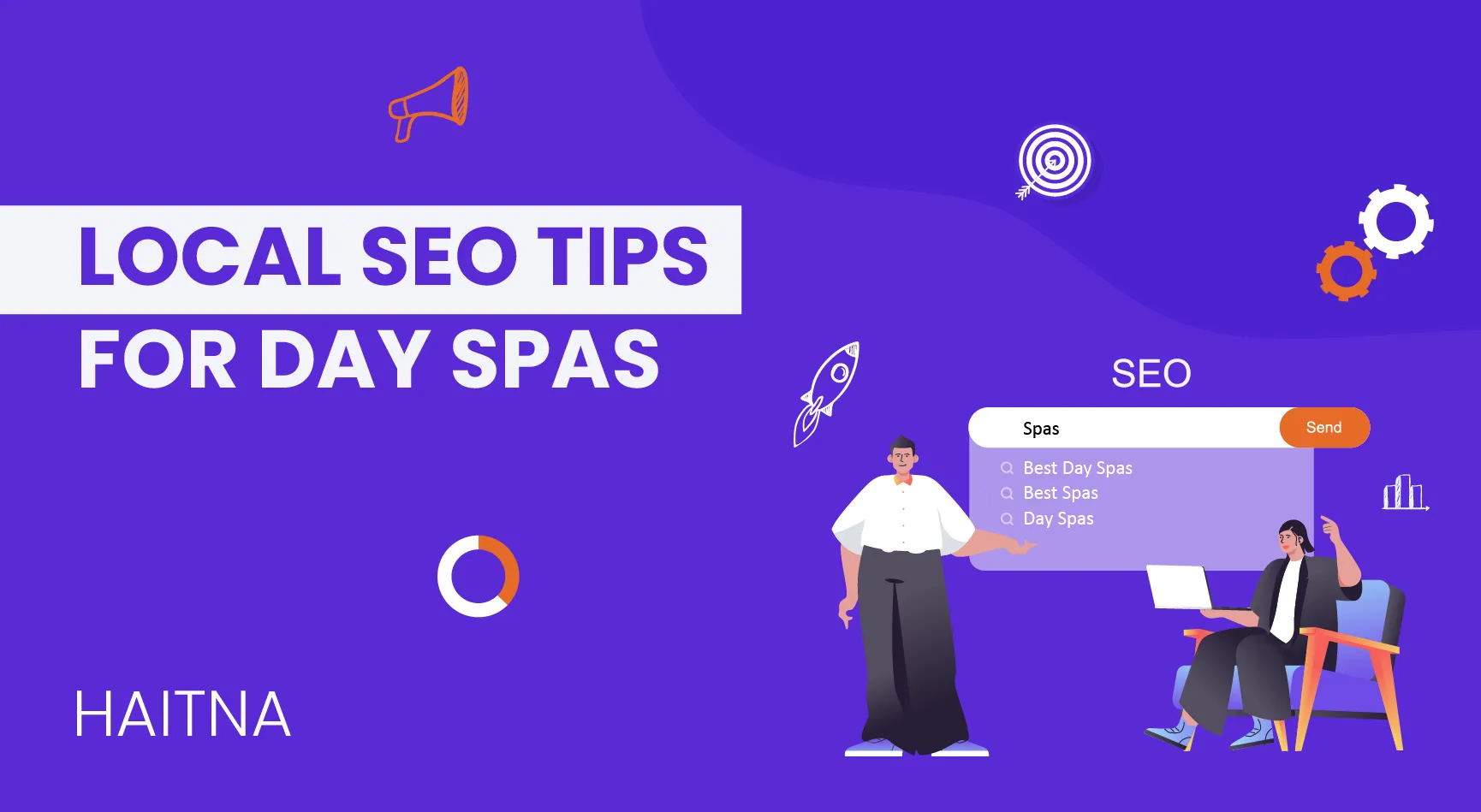
Local SEO Tips for Day Spas
Introduction
Many factors contribute to the success of a day spa. Many moving parts are involved in a day spa's success, from location and signage to services and affordability.
If you are considering starting a day spa or running one, there is one thing that you should know: The difficult economic landscape we live in, thanks to Covid-19.
And difficult economics means that it is more important than ever to stand out from the crowd and do everything possible to get noticed -- including investing in Local SEO.
We're here to cover some of the basics of Local SEO for your day spa.
Here is the List of Tips You Can Consider
1. Optimize Google My Business Page
The first thing you need to do is create your Google My Business account. This will help people find you both on Maps, as well as in search results.
Many day spas are unaware that optimizing their GMB profile can be an easy way to boost their presence on the web.
Keyword research is the first step to make sure people can find your business when they search online. Use keywords like "spa treatments for women," "salt glow therapy," and "massage therapy," among others (in your listing) that are related to the services you offer.
Make sure you have a great picture of your spa (preferably the outside view) and your business hours and location mentioned. Also, add your social media profile links to the GMB profile.
Optimizing a profile takes time and effort, but it is well worth it because research has shown that local businesses with a GMB profile rank higher in search engine results than those that don't have one.
Example: Take a look at how Relache Spa uses photos, reviews, social media links in its GMB profile.

2. Create Location-specific Pages
A Location Page is a web page designed to cater to visitors from a specific geographic area. Location pages are also crucial for businesses to help your spa rank higher in searches like Google Places and Maps.
Location is one of the most important aspects of SEO. If your website does not rank in Google's search results for a particular city, it will be challenging to get traffic. More and more people are using their smartphones to search for local businesses.
Read: Important Tips to do Local SEO for Multiple locations
If you don't show up when someone is looking for your services in their hometown, they may never know you exist.
For example, a day spa in Fort Worth would want to have a " Texas " page optimized to rank well for searches that include "Texas" or other relevant keywords.
Example: Take a look at Hiatus Spa's Location Page optimized for Fort Worth.
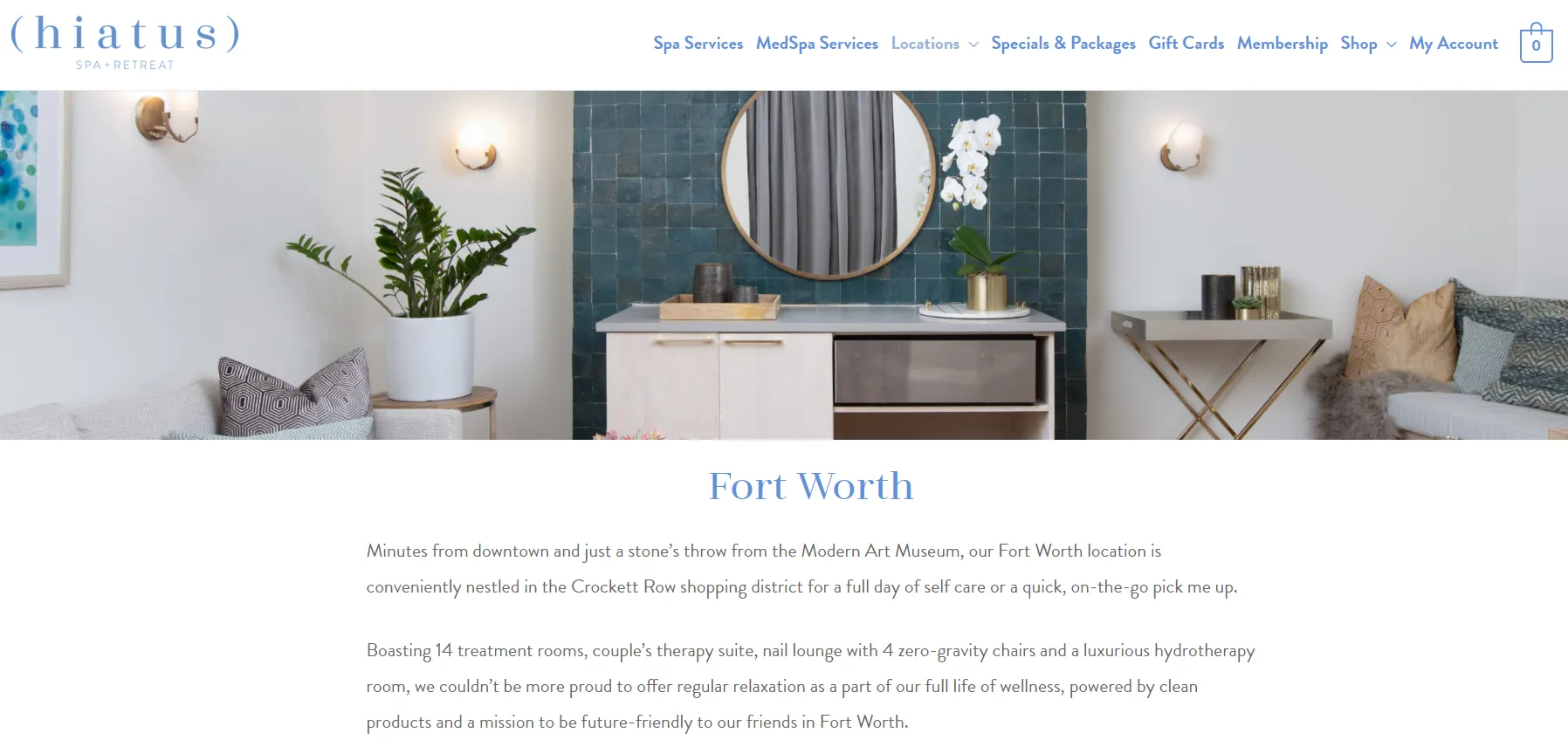
3. Create Content for the Local Audience
The content on your website must be tailored to each geographic location. You need to make sure that all of your content is localized and keep in mind the general needs of your customers.
Google's search algorithm is constantly changing, so content localization is one of the most critical factors for ranking content in search engine results.
The more local content you have on your website, the higher your site will rank in Google for localized keywords. This is because Google prefers pages with strong relevance to a given location.
Also, local businesses have a unique opportunity to better serve their audience by creating content for their local area. In recent years, the need for personalization in marketing has been called out as a critical requirement in the digital age.
Three Content Idea Generators:
- Portent - Create titles for your blog post, video, and podcasts
- Answer The Public - This tool listens into Google autocomplete data and give you content ideas
- Klock - A simple-to-use platform to come up with a range of titles for a blog post in seconds
Here’s a screenshot of Portent’s idea generator tool.
Enter a keyword and click on ‘Generate idea’ for blog title ideas:
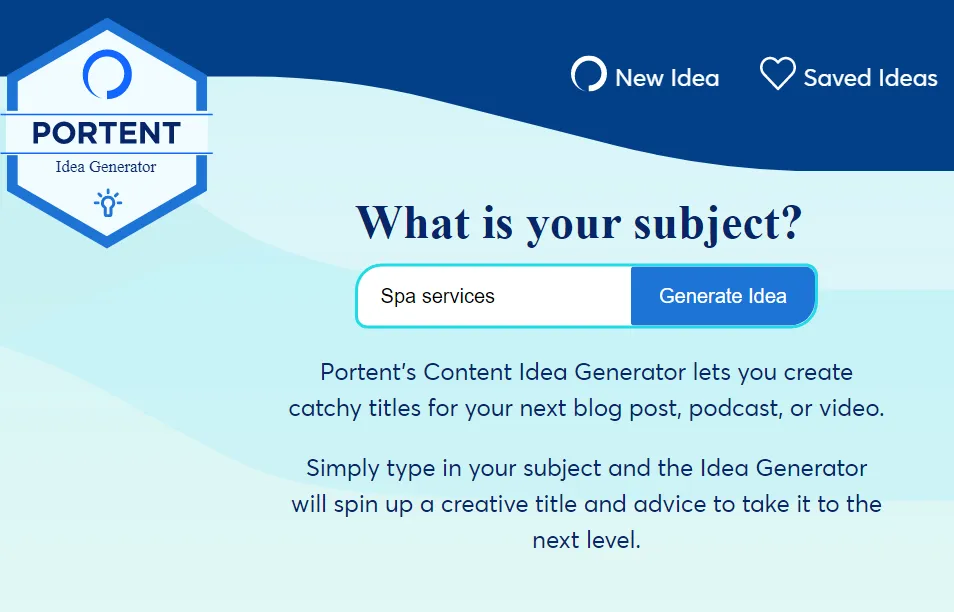
4. Get Local Backlinks
Every search engine rewards websites with a high number of backlinks. Backlinks are the cornerstone of every SEO campaign, and local businesses need to get these links to rank high on search engine results pages (SERPs).
A website can be easily found and indexed by Google with local backlinks. If you are unaware of a local backlink, it is a link that points to another website or web page. This helps because people who search for information online are more likely to click through to websites with locally relevant content.
As a search engine, Google relies on local data to rank websites. The more local backlinks you have, the better your site will rank. Local backlinks can be obtained through social media ads, article marketing, and guest posting on other sites.
Example: Take a look at how 13 spas from Texas got local backlinks from Texas Outside
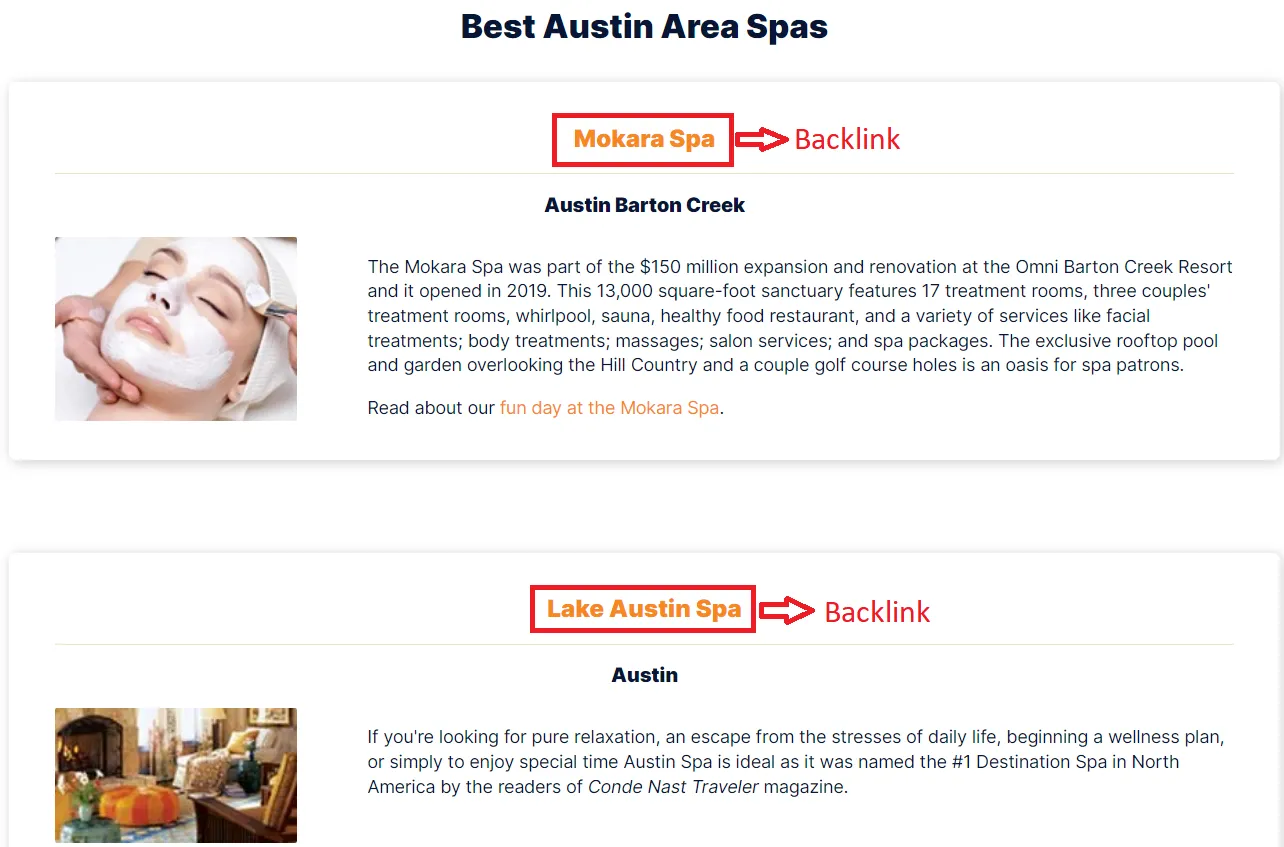
5. Claim Your Business Listings
Claiming business listings on various local search engines is essential for your overall SEO strategy. The top three sites in this area are Google My Business, Yelp, and Facebook, serving a different purposes.
Since we have discussed GMB earlier in this article, let's talk about Yelp. Yelp allows individual customers to review products or services they have purchased from that company.
Next comes Facebook. Many day spas are unaware of the importance of claiming their business listing on Facebook.
The benefits include:
- Increased visibility of your spa.
- Enabling you to control who can view it or even edit it.
- Preventing spammers from taking advantage of your spa's identity.
Example: This is how a claimed listing looks like
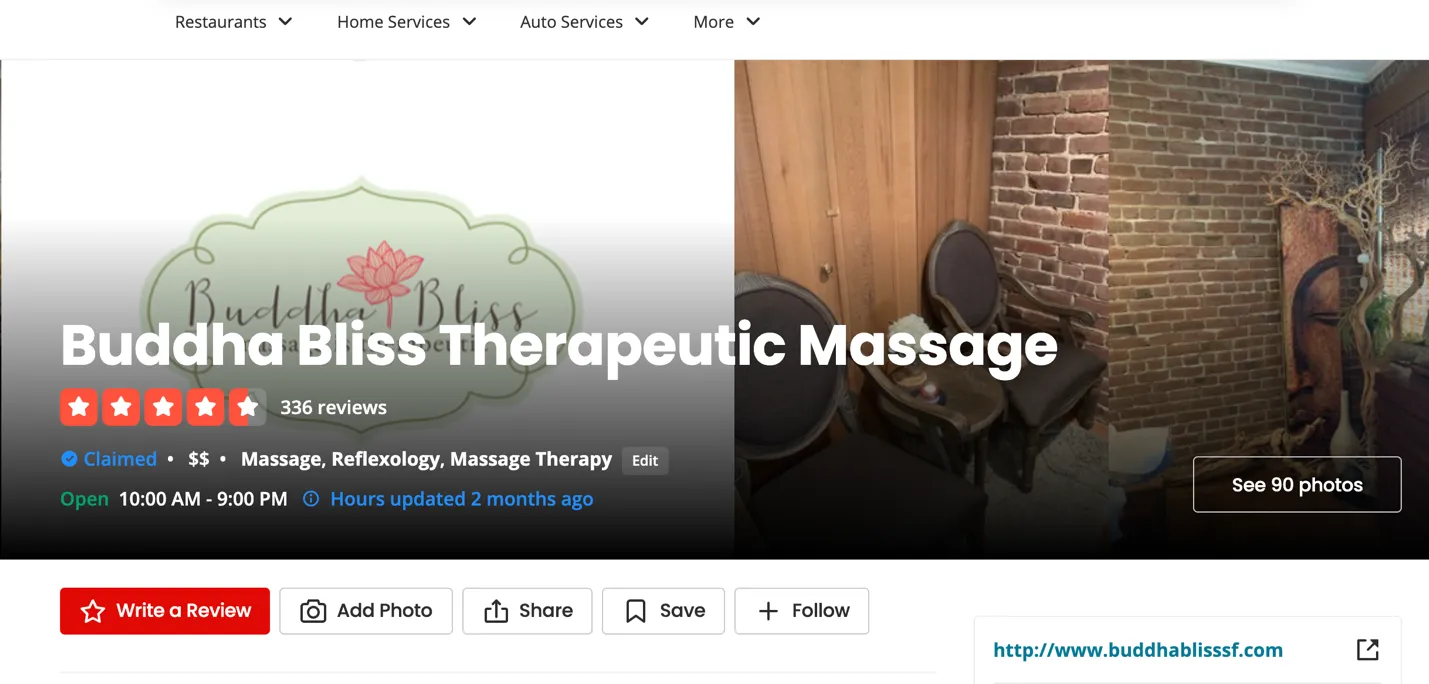
6. Do a Local SEO Audit
SEO audits are a critical and often overlooked aspect of running a website. SEO audits, especially for larger websites, can be time-consuming.
However, they provide an invaluable service to help ensure that your site ranks well in search engine results pages and the best it can be for conversion rates.
Auditing will pinpoint the strengths and weaknesses of your site. A Local SEO audit is performed by reviewing each page on your website for errors that could hinder SERP rankings.
You should evaluate your website based on keywords, content, backlinks, and other factors that search engines consider while listing your business. If your site is poorly coded, it may also prevent you from achieving your full potential.
Three Tools to do Local SEO Audit:
- Digital Bull Go - A tool that analyzes 100+ ranking factors impacting your search results
- Bright Local - A ready-to-use free tool to local audit your site to improve search visibility
- Moz Local - Analyze everything from social media presences to your website's technical elements using this tool
The SEO Audit & Reporting Tool from SEOptimer is a great tool for auditing your website:
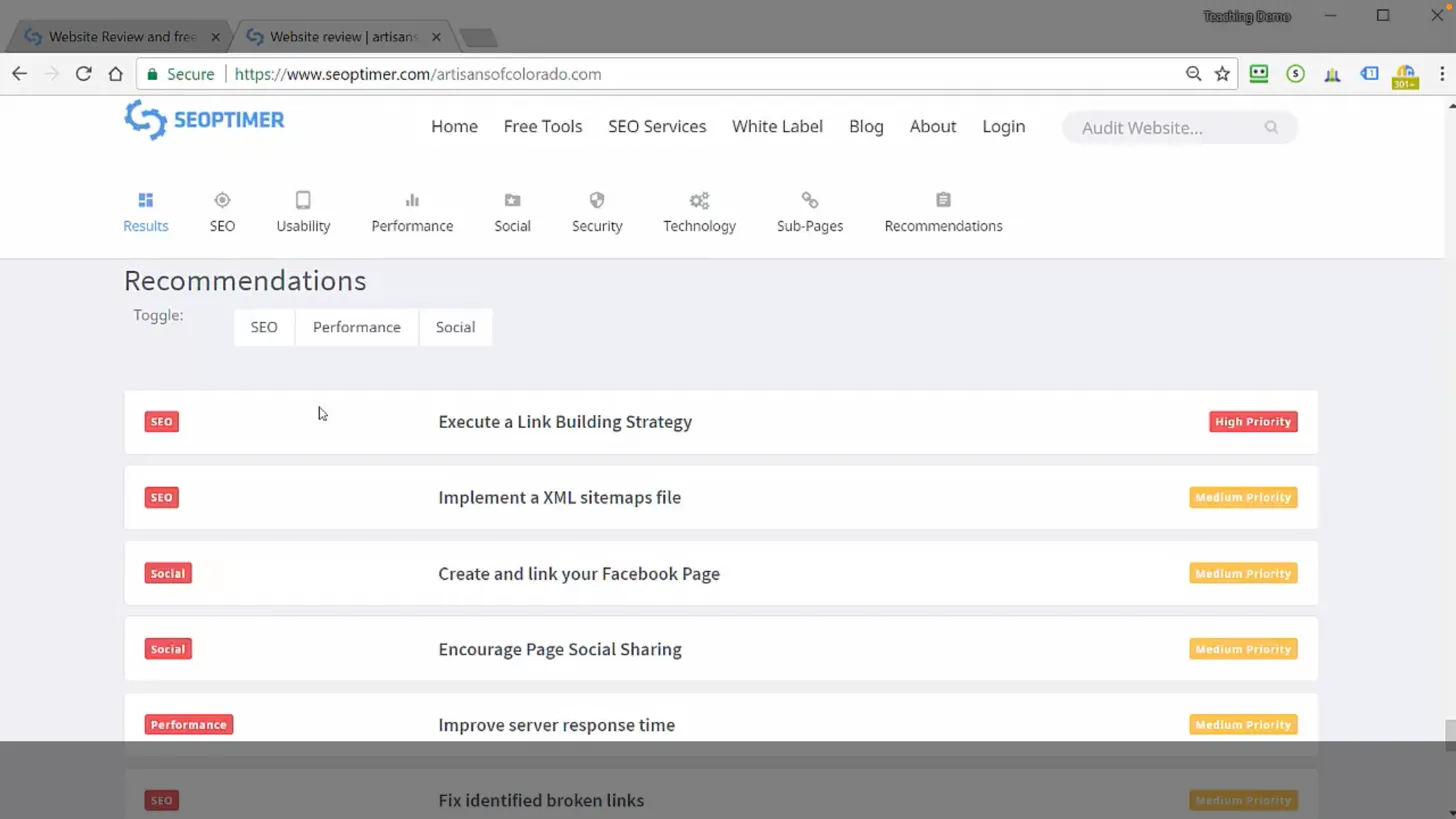
7. Collaborate With Local Newspapers
To rank higher in local search results, you need to cultivate relationships with local dailies and magazines and maintain them throughout the lifespan of your business. Local media houses are often an outlet for your business to get publicity.
A great way to do this is by providing them with relevant stories that they can publish on their website or in print. A backlink from a local newspaper provides an outside sign of legitimacy and can help you rank higher in search engines.
For example, if you are a small business owner in Dallas, there may be an article about what your business offers and how it would benefit someone.
You have the opportunity to link back to your homepage or location page on this newspaper article so that people reading it will know where you are located.
Example: Check out how Texas's Bergamo's Retreat got featured in Paper City, Houston Chronicle, Community Impact Newspaper, and the like.
Printing QR codes that link to your website in newspapers is an effective way of acquiring backlinks:

8. Optimize Website for Voice Search
The current SEO paradigm is shifting to accommodate the growth of voice search, which is overtaking text-based search in specific scenarios.
Many are now using voice commands to find information on the internet, which presents new challenges for webmasters who want to optimize their sites for voice search.
Optimizing your spa's website for voice search will improve SEO by integrating natural language processing so that results can be vocally searched and read aloud.
Voice search takes keywords from the user's spoken sentence and looks for excerpts from websites that correspond to those words.
Examples for voice searches for a day spa would be "what are the best massage centers near me," "how much does foot scrub service cost," and so on.
Some Useful Tips:
- Use conversational keywords
- Use FAQ section to insert keywords
- Claim your GMB profile
Google’s autofill feature shows long-tail keywords which are useful for optimizing your website for voice search:
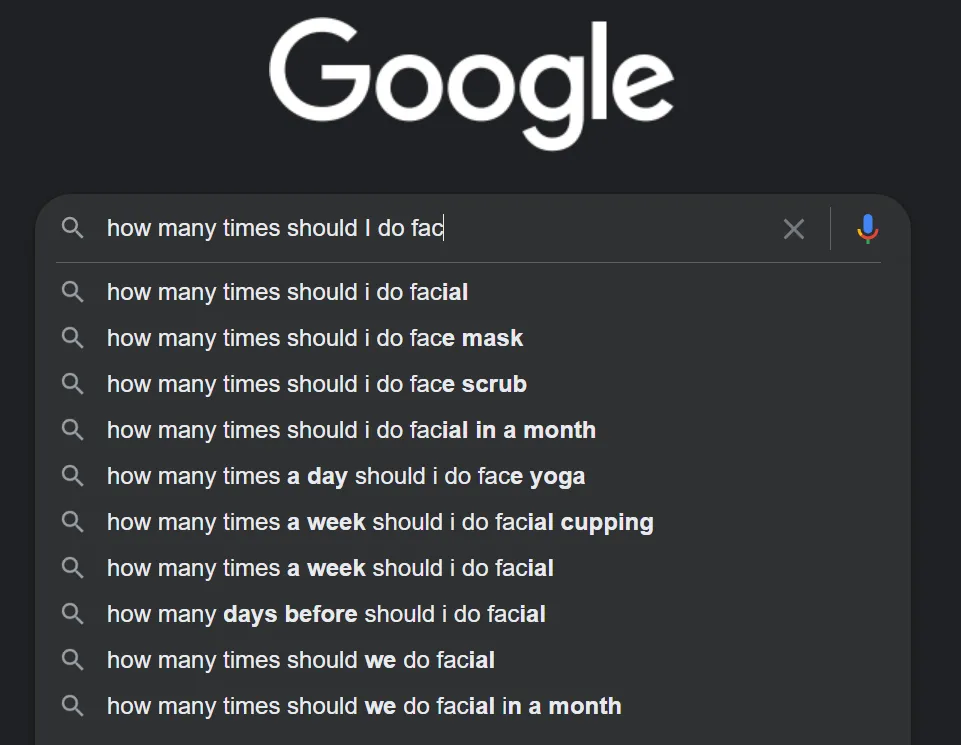
9. Ensure NAP Consistency
Search engines rely heavily on the consistency of NAP (Name, Address, and Phone Number) data for accurate indexing and ranking. This is especially important because it can be difficult for search engines to determine which page they should associate with a brand identity.
For example, if your spa has a Facebook and Twitter account, both should have the same name, logo, and other information.
Search engines will penalize websites if your NAP information is incorrectly displayed on search engine results pages. This can be due to multiple listings of the same site or using variations of site names and addresses.
For example, if your spa is called "Jane's Spa" in Yelp and is found under the name Jane Spa in FourSquare, it is considered a variation.
Three NAP Consistency Checking Tools:
- Moz - A free-to-use tool to find how accurately your business appears across platforms
- Bright Local - A citation tracker tool with a 14-day free trial
- Whitespark - Another free-to-try tool to find your local citations
Here’s a screenshot of Moz’s tool:
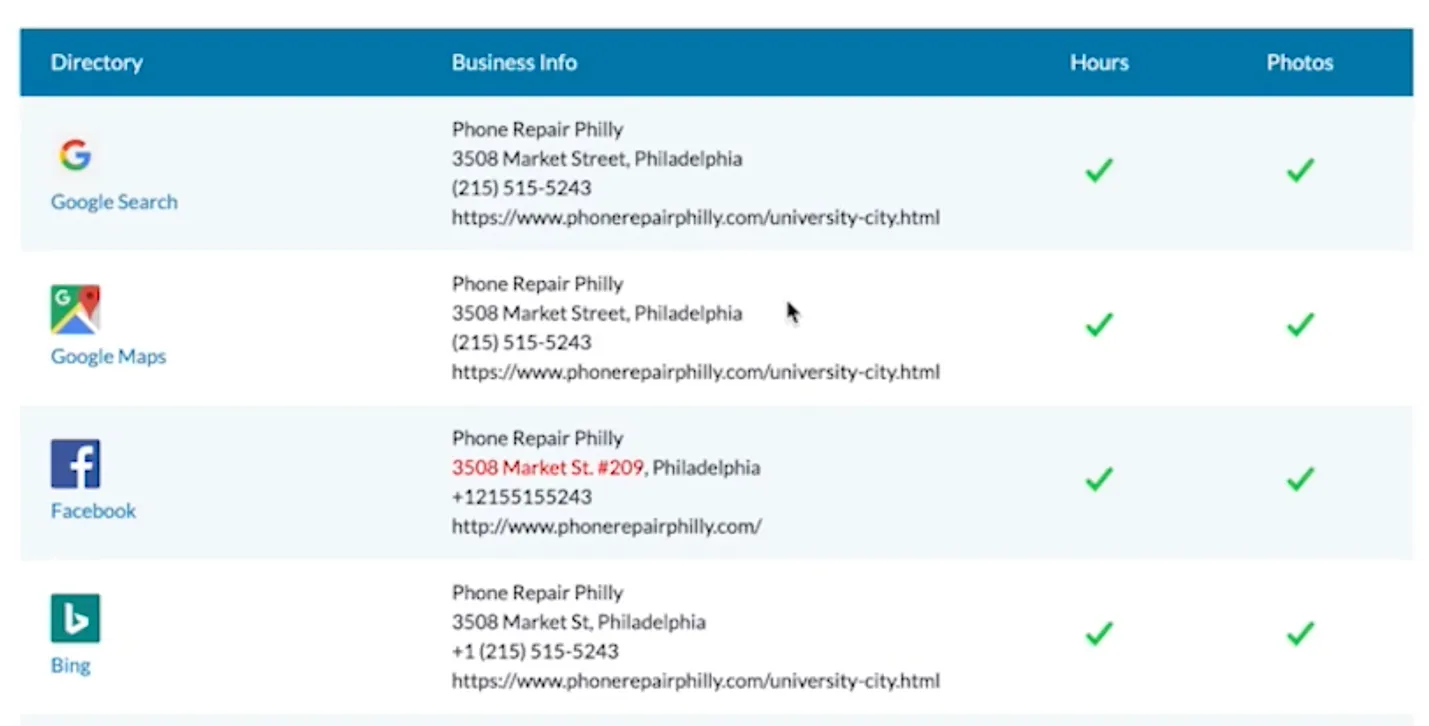
10. Respond to Reviews on Public Platforms
A day spa needs to respond to public reviews for several reasons.
Firstly, responding to reviews often leads to improved customer satisfaction and retention.
Secondly, it allows your spa to apologize for any negative experiences and show you care about feedback.
Thirdly, responding helps establish trustworthiness and transparency by showing customers that you are willing to address their grievances. Lastly, it's an opportunity to get more reviews that will help rank on Google and other search engines.
Also, when people leave reviews, they provide information about their preferences and experience with the spa. You can use these reviews to gather customer insights to improve your Local SEO further.
Three Tools To Manage Reviews And Reputation:
- Brandify: It comes with an intuitive dashboard to manage all of your online reviews
- Reviewpush: This online review management tool comes with a free 30-day trial
- Capterra: This is not a tool but a place where you can find lots of online reputation management tools
Here’s a report by Brandify showing positive, negative, and neutral reviews:
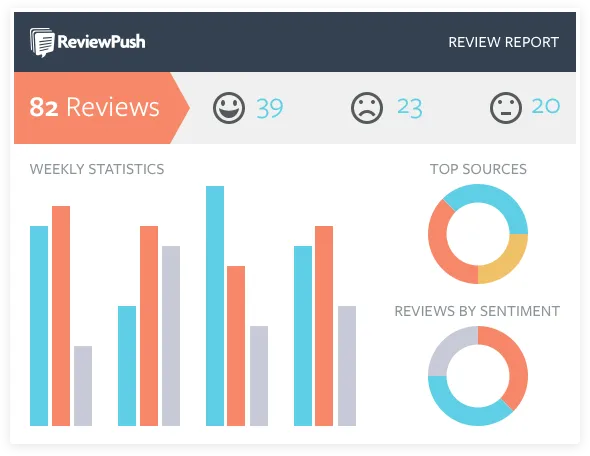
Local SEO for Spas - FAQs
1. How To Get More Customers For My Day Spa?
Consider investing in PPC ads or SEO to get more calls and footfall. Optimize your GMB profile and claim your business on crowd-sourced review platforms.
2. How To Promote My Day Spa On Social Media?
Stick to a posting schedule. Because Instagram and TikTok are visual platforms, upload more videos to grab the eyeballs. Exploit features such as Reels.
3. Can I Run Ads For My Day Spa?
Yes. PPC Ads are great to test the waters. Google and Bing are among the most preferred platforms to run ads.
Key Takeaways
- Optimize your GMB profile for more calls and walk-ins
- Create location pages for your spa website
- Earn local backlinks from newspapers, magazines, etc
- Optimize your website for voice search
- Ensure your spa's name, address, and phone number appear the same across platforms.
- Perform a local SEO audit to find the flaws in your website
- Claim your business listings on platforms such as Yelp and Four Square
- Curate content keeping the local audience in mind
ABOUT THE AUTHOR:
Joseph Schneider

He has spent more than 12 Years strategizing and executing SEO campaigns. He is interested in writing Digital-marketing, PPC, and Social Media Marketing related topics.
Related Post
Local SEO for Multiple Locations
Local SEO for Appliance Repair Companies
Local SEO for Pest Control Firms
Local SEO for Nonprofit Organizations
Local SEO for Flooring Companies
Local SEO for Roofing Contractors
Local SEO for Auto Repair Shops
Local SEO for Landscaping Companies
Local SEO for Personal Trainers
Local SEO for Ecommerce Websites
Local SEO for Enterprise Firms
Local SEO for Asphalt Paving Contractors
Local SEO for Small Businesses
ABOUT THE AUTHOR:
Joseph Schneider

He has spent more than 12 Years strategizing and executing SEO campaigns. He is interested in writing Digital-marketing, PPC, and Social Media Marketing related topics.
Related Post
Local SEO for Multiple Locations
Local SEO for Appliance Repair Companies
Local SEO for Pest Control Firms
Local SEO for Nonprofit Organizations
Local SEO for Flooring Companies
Local SEO for Roofing Contractors
Local SEO for Auto Repair Shops
Local SEO for Landscaping Companies
Local SEO for Personal Trainers
Local SEO for Ecommerce Websites
Local SEO for Enterprise Firms
Local SEO for Asphalt Paving Contractors
Local SEO for Small Businesses